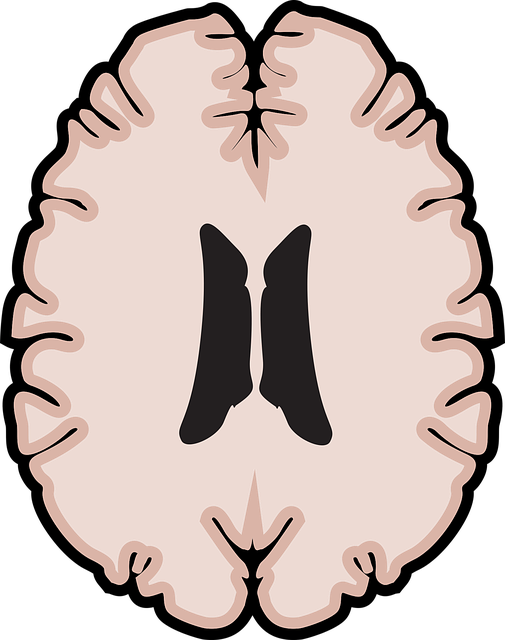Trauma, both acute and chronic, significantly impacts physical health, leading to conditions like autoimmune disorders, cardiovascular diseases, and cancer. Therapy for chronic illnesses must incorporate trauma-informed care, focusing on distress management, mood regulation, and stress reduction techniques. Specialized therapies such as CBT, EMDR, and mindfulness interventions are crucial for managing complex trauma and chronic pain. Building accessible support networks, integrating empathy-building strategies, and advocating for mental health policies prioritize trauma support, empowering individuals to recover with resilience and dignity.
“In the realm of healthcare, addressing trauma’s profound impact on chronic illnesses is paramount. This article explores comprehensive strategies for supporting individuals navigating both challenges. We delve into understanding trauma’s intricate link with chronic conditions, highlighting the transformative power of therapy. From specialized services for complex trauma to pain management, we examine innovative approaches. Additionally, we emphasize the importance of accessible support networks in fostering recovery. Discover how these elements intertwine to revolutionize care for those facing chronic illnesses and past traumas.”
- Understanding Trauma and Its Impact on Chronic Illnesses
- The Role of Therapy in Supporting Individuals with Chronic Conditions
- Specialized Services for Complex Trauma and Chronic Pain Management
- Building Accessible and Comprehensive Support Networks
Understanding Trauma and Its Impact on Chronic Illnesses

Trauma, whether acute or chronic, significantly influences the development and progression of various physical health conditions, many of which are considered chronic illnesses. This complex relationship is rooted in the impact of prolonged stress on the body’s physiological systems. When an individual experiences trauma, their body enters a state of heightened arousal, activating the sympathetic nervous system. Over time, this can lead to dysregulation of hormonal balance and immune function, making them more susceptible to illness. For instance, studies have shown a strong correlation between childhood trauma and later development of autoimmune disorders, cardiovascular diseases, and even cancer.
Understanding these mechanisms highlights the critical need for therapy for chronic illnesses that incorporates trauma-informed care. This approach focuses on addressing the root causes of distress, promoting mood management, and implementing stress management techniques. Moreover, community outreach program implementation can play a pivotal role in providing support networks and education to individuals dealing with both trauma and chronic health conditions. By integrating these strategies, healthcare professionals can offer more holistic treatment plans, enhancing recovery outcomes and overall well-being for those affected by such complex interplay between trauma and physical health.
The Role of Therapy in Supporting Individuals with Chronic Conditions

Therapy plays a pivotal role in supporting individuals living with chronic conditions. It provides a safe space for them to process and manage their emotional experiences related to their illness, fostering inner strength development. Through tailored interventions, therapists help patients navigate the challenges of their condition, offering strategies to cope with physical symptoms, stress, and anxiety. This holistic approach not only enhances their quality of life but also empowers them to advocate for their mental health needs.
Public awareness campaigns development and cultural sensitivity in mental healthcare practice are essential components that complement therapy for chronic illness. By raising awareness about the unique mental health challenges associated with chronic conditions, these initiatives foster a supportive environment. Cultural sensitivity ensures that individuals from diverse backgrounds receive culturally competent care, respecting their values and beliefs while promoting effective therapy sessions.
Specialized Services for Complex Trauma and Chronic Pain Management

Specialized services are crucial when it comes to addressing complex trauma and chronic pain management. Many individuals suffering from these conditions often require tailored therapy for chronic illness, which goes beyond conventional treatments. This involves advanced techniques focused on the unique needs of those who have experienced profound psychological and physical trauma. Such specialized care can include various therapeutic approaches, such as cognitive behavioral therapy (CBT), eye movement desensitization and reprocessing (EMDR), and mindfulness-based interventions, all designed to help clients process their traumatic experiences and develop effective coping strategies.
Building empathy and employing burnout prevention strategies for healthcare providers are integral aspects of delivering comprehensive trauma support. Healthcare professionals play a vital role in fostering a safe and supportive environment, utilizing stress reduction methods to ensure they can offer consistent care. By implementing these strategies, providers not only enhance their own well-being but also significantly contribute to the effectiveness of trauma support services, enabling individuals to navigate their recovery journeys with resilience and hope.
Building Accessible and Comprehensive Support Networks

Building accessible and comprehensive support networks is vital for trauma survivors, especially those facing chronic illnesses. These networks should encompass a diverse range of services tailored to individual needs, encompassing both physical and mental health aspects. One effective approach involves integrating therapy for chronic illness with empathy-building strategies and self-awareness exercises. Such interventions can be delivered through specialized centers or community-based initiatives, ensuring survivors have easy access to professional care.
Mental health policy analysis and advocacy play a crucial role in this process, pushing for systemic changes that prioritize trauma support. By fostering an environment where empathy is at the core of healthcare delivery, survivors are more likely to receive holistic care that addresses both their physical symptoms and psychological scars. This comprehensive approach not only enhances recovery but also empowers individuals to navigate their journeys with resilience and dignity.
In conclusion, addressing trauma and its impact on chronic illnesses is vital. Accessing appropriate therapy for chronic illness management, including specialized services for complex trauma and pain, can significantly enhance patient outcomes. Building comprehensive support networks ensures individuals affected by these conditions receive holistic care tailored to their unique needs. By integrating accessible resources and fostering an environment of understanding, we can revolutionize the support provided to those navigating both chronic illnesses and traumatic experiences.








